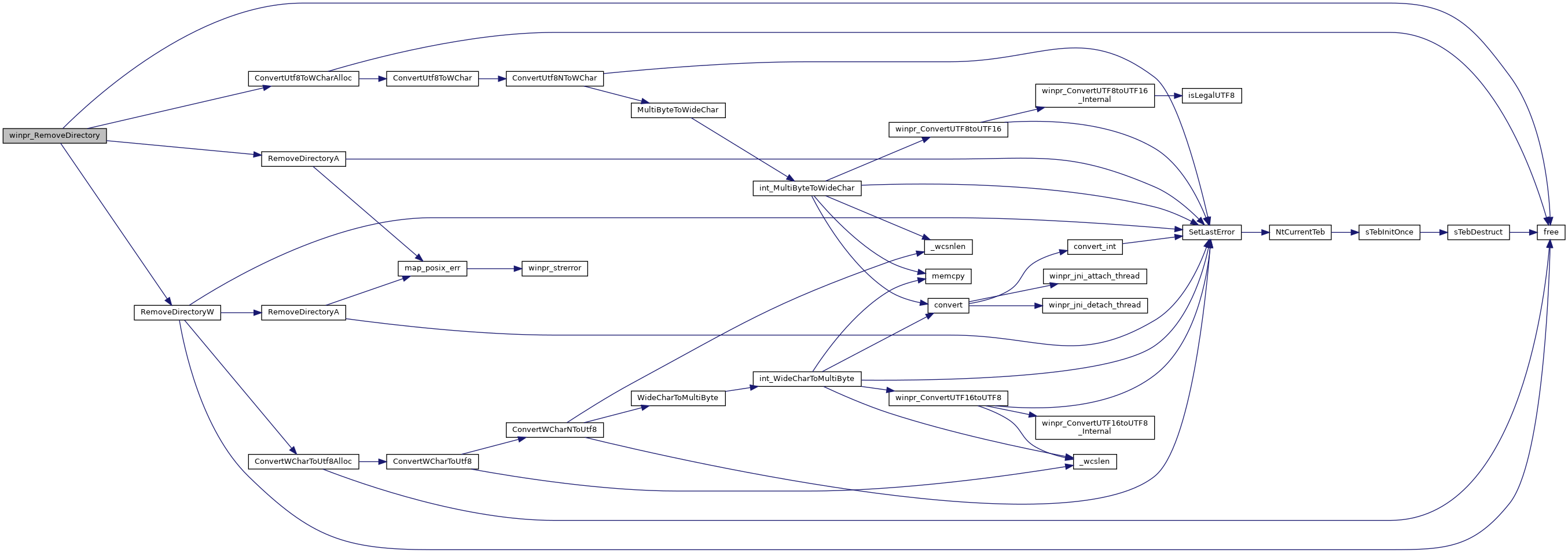#include <winpr/config.h>#include <stdio.h>#include <stdlib.h>#include <string.h>#include <sys/stat.h>#include <winpr/crt.h>#include <winpr/platform.h>#include <winpr/file.h>#include <winpr/tchar.h>#include <winpr/environment.h>#include <winpr/path.h>#include <winpr/wlog.h>#include "../log.h"#include <errno.h>#include <dirent.h>Macros | |
| #define | TAG WINPR_TAG("path.shell") |
Functions | |
| static char * | GetPath_XDG_CONFIG_HOME (void) |
| static char * | GetPath_XDG_RUNTIME_DIR (void) |
| char * | GetEnvAlloc (LPCSTR lpName) |
| static char * | GetPath_HOME (void) |
| static char * | GetPath_TEMP (void) |
| static char * | GetPath_XDG_DATA_HOME (void) |
| static char * | GetPath_XDG_CACHE_HOME (void) |
| char * | GetKnownPath (int id) |
| char * | GetKnownSubPath (int id, const char *path) |
| char * | GetEnvironmentPath (char *name) |
| char * | GetEnvironmentSubPath (char *name, const char *path) |
| char * | GetCombinedPath (const char *basePath, const char *subPath) |
| BOOL | PathMakePathA (LPCSTR path, LPSECURITY_ATTRIBUTES lpAttributes) |
| BOOL | PathMakePathW (LPCWSTR path, LPSECURITY_ATTRIBUTES lpAttributes) |
| BOOL | PathIsRelativeA (LPCSTR pszPath) |
| BOOL | PathIsRelativeW (LPCWSTR pszPath) |
| BOOL | PathFileExistsA (LPCSTR pszPath) |
| BOOL | PathFileExistsW (LPCWSTR pszPath) |
| BOOL | PathIsDirectoryEmptyA (LPCSTR pszPath) |
| BOOL | PathIsDirectoryEmptyW (LPCWSTR pszPath) |
| BOOL | winpr_MoveFile (LPCSTR lpExistingFileName, LPCSTR lpNewFileName) |
| BOOL | winpr_MoveFileEx (LPCSTR lpExistingFileName, LPCSTR lpNewFileName, DWORD dwFlags) |
| BOOL | winpr_DeleteFile (const char *lpFileName) |
| BOOL | winpr_RemoveDirectory (LPCSTR lpPathName) |
| BOOL | winpr_PathFileExists (const char *pszPath) |
| BOOL | winpr_PathMakePath (const char *path, LPSECURITY_ATTRIBUTES lpAttributes) |
Macro Definition Documentation
◆ TAG
| #define TAG WINPR_TAG("path.shell") |
WinPR: Windows Portable Runtime Path Functions
Copyright 2012 Marc-Andre Moreau marcandre.moreau@gmail.com Copyright 2016 David PHAM-VAN d.phamvan@inuvika.com
Licensed under the Apache License, Version 2.0 (the "License"); you may not use this file except in compliance with the License. You may obtain a copy of the License at
http://www.apache.org/licenses/LICENSE-2.0
Unless required by applicable law or agreed to in writing, software distributed under the License is distributed on an "AS IS" BASIS, WITHOUT WARRANTIES OR CONDITIONS OF ANY KIND, either express or implied. See the License for the specific language governing permissions and limitations under the License.
Function Documentation
◆ GetCombinedPath()
| char* GetCombinedPath | ( | const char * | basePath, |
| const char * | subPath | ||
| ) |
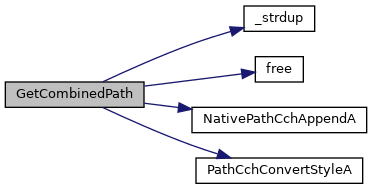
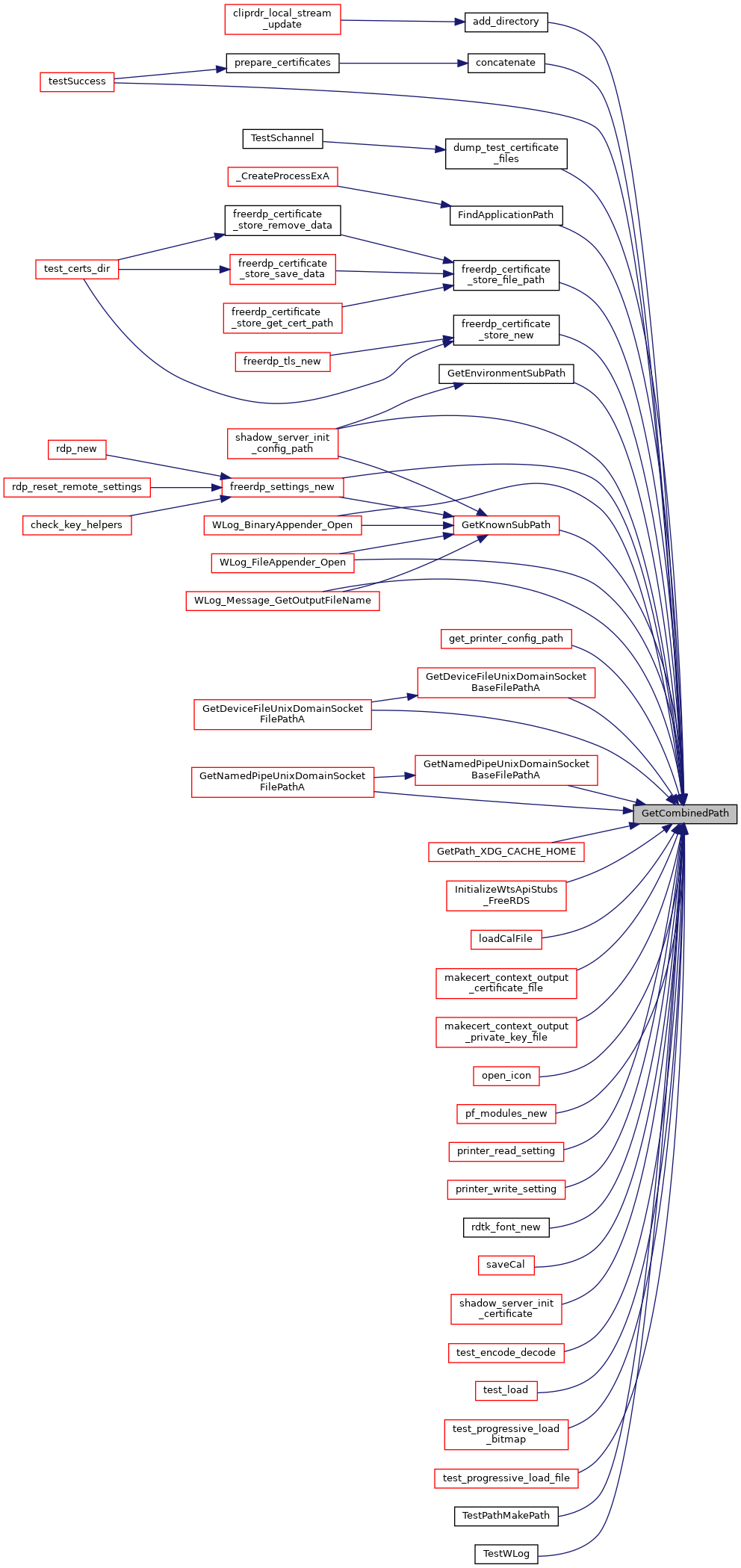
◆ GetEnvAlloc()
| char* GetEnvAlloc | ( | LPCSTR | lpName | ) |
SHGetKnownFolderPath function: http://msdn.microsoft.com/en-us/library/windows/desktop/bb762188/ XDG Base Directory Specification: http://standards.freedesktop.org/basedir-spec/basedir-spec-latest.html

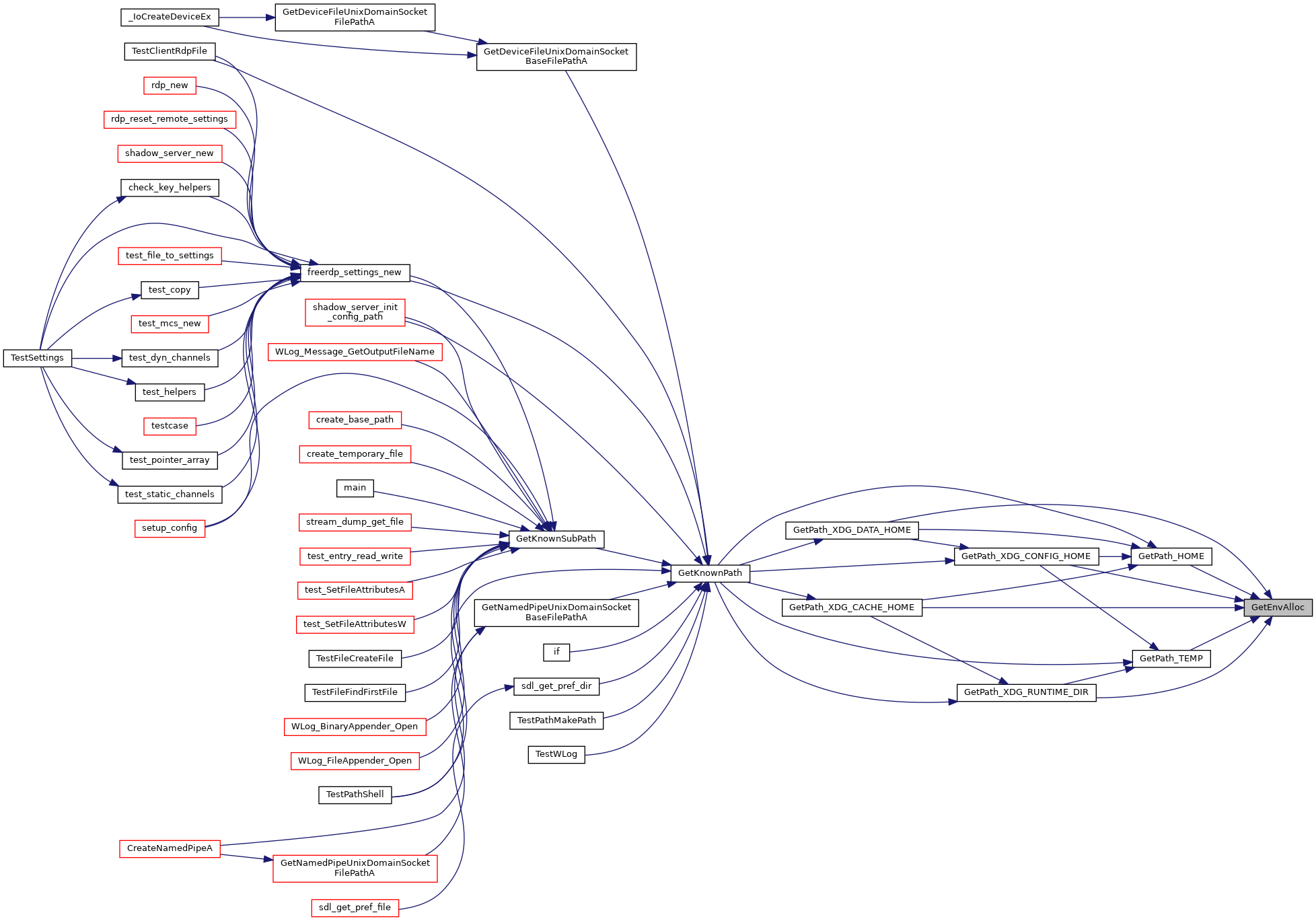
◆ GetEnvironmentPath()
| char* GetEnvironmentPath | ( | char * | name | ) |


◆ GetEnvironmentSubPath()
| char* GetEnvironmentSubPath | ( | char * | name, |
| const char * | path | ||
| ) |

◆ GetKnownPath()
| char* GetKnownPath | ( | int | id | ) |
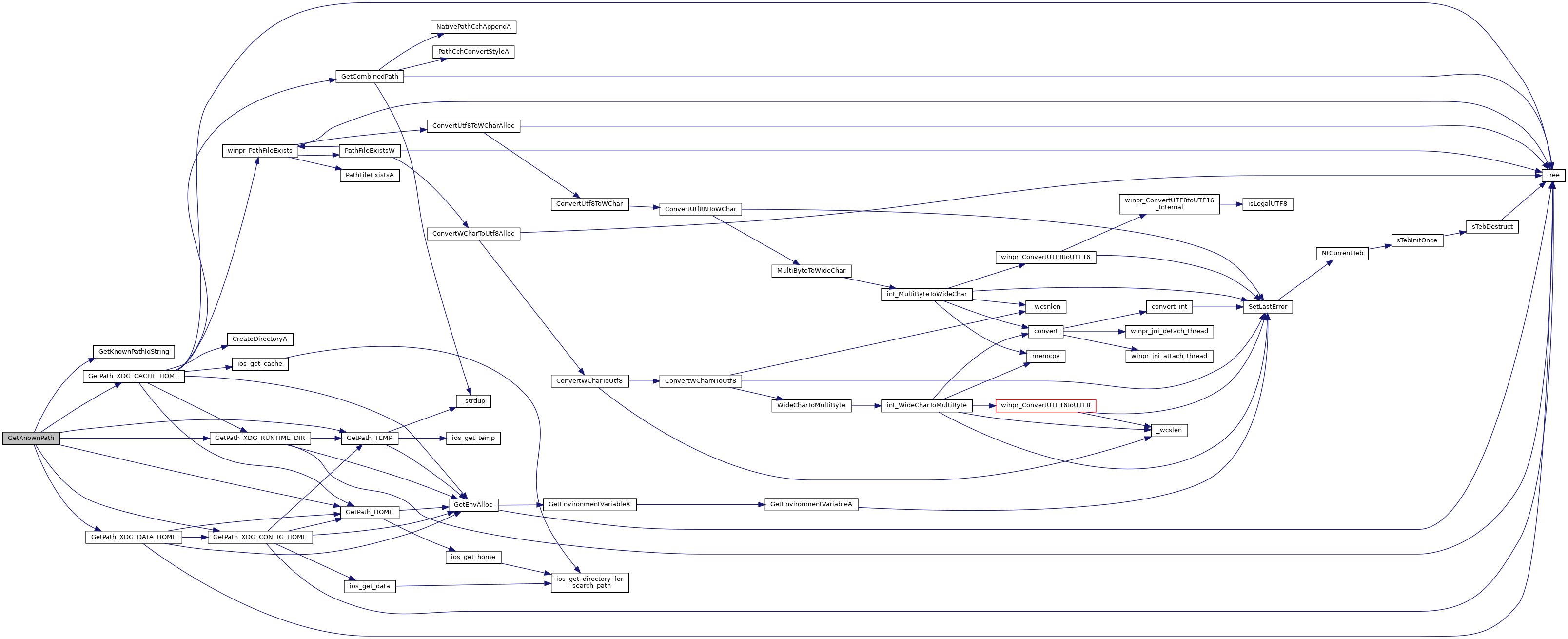
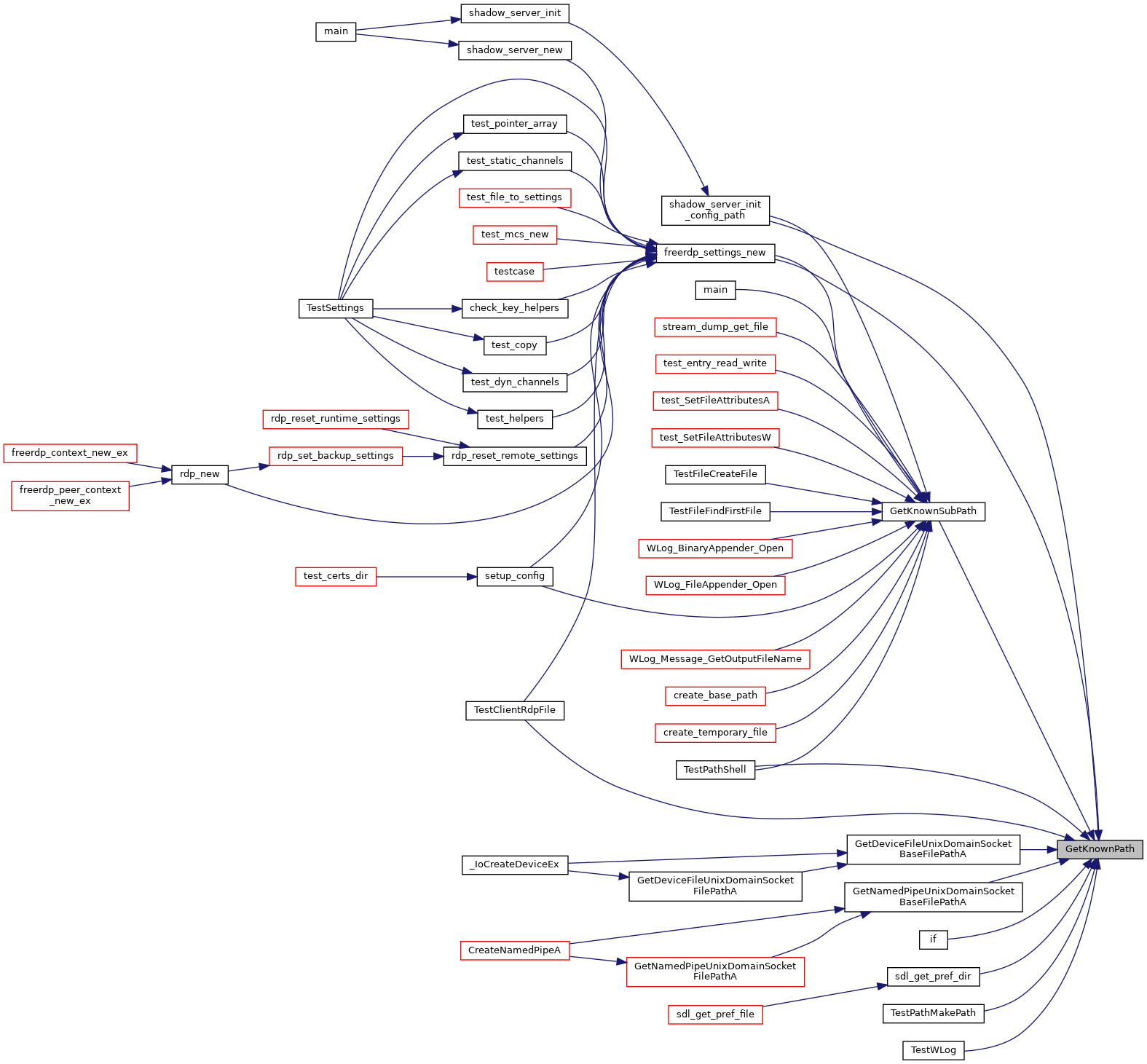
◆ GetKnownSubPath()
| char* GetKnownSubPath | ( | int | id, |
| const char * | path | ||
| ) |
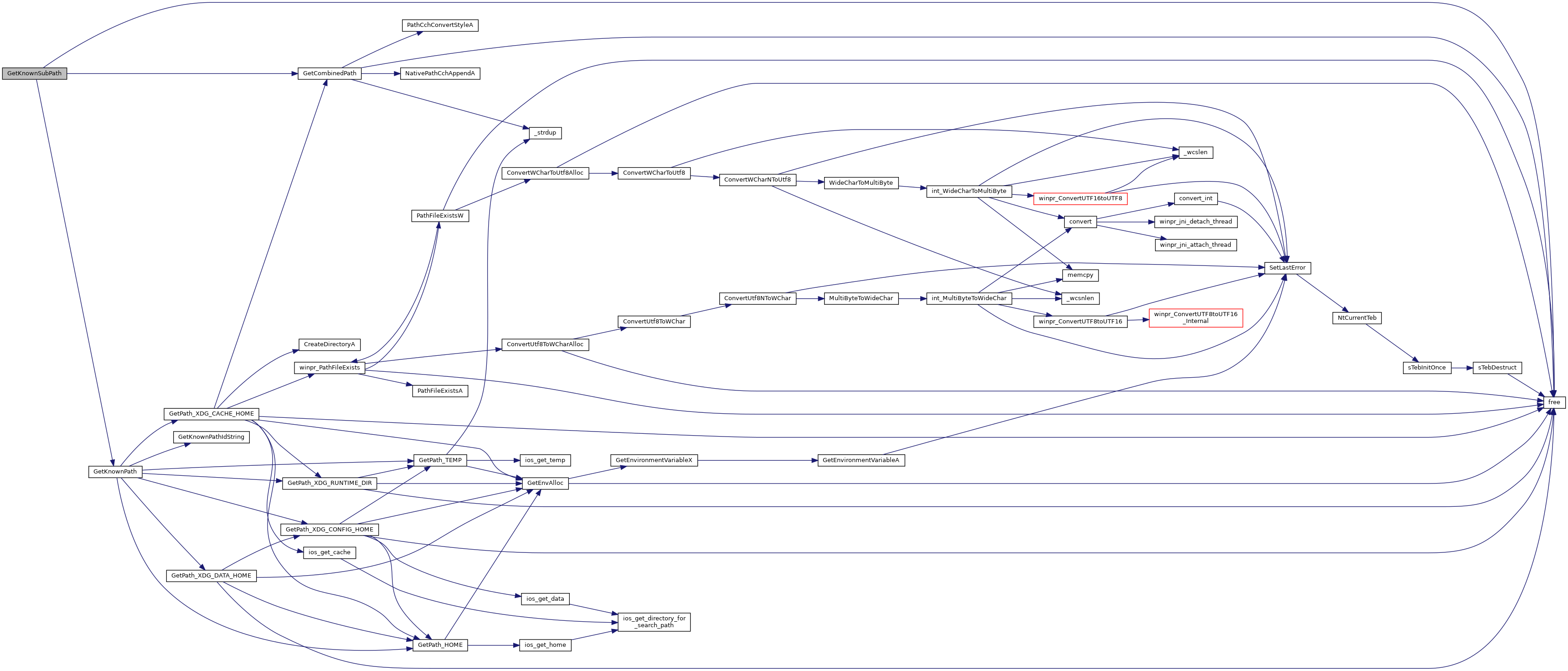
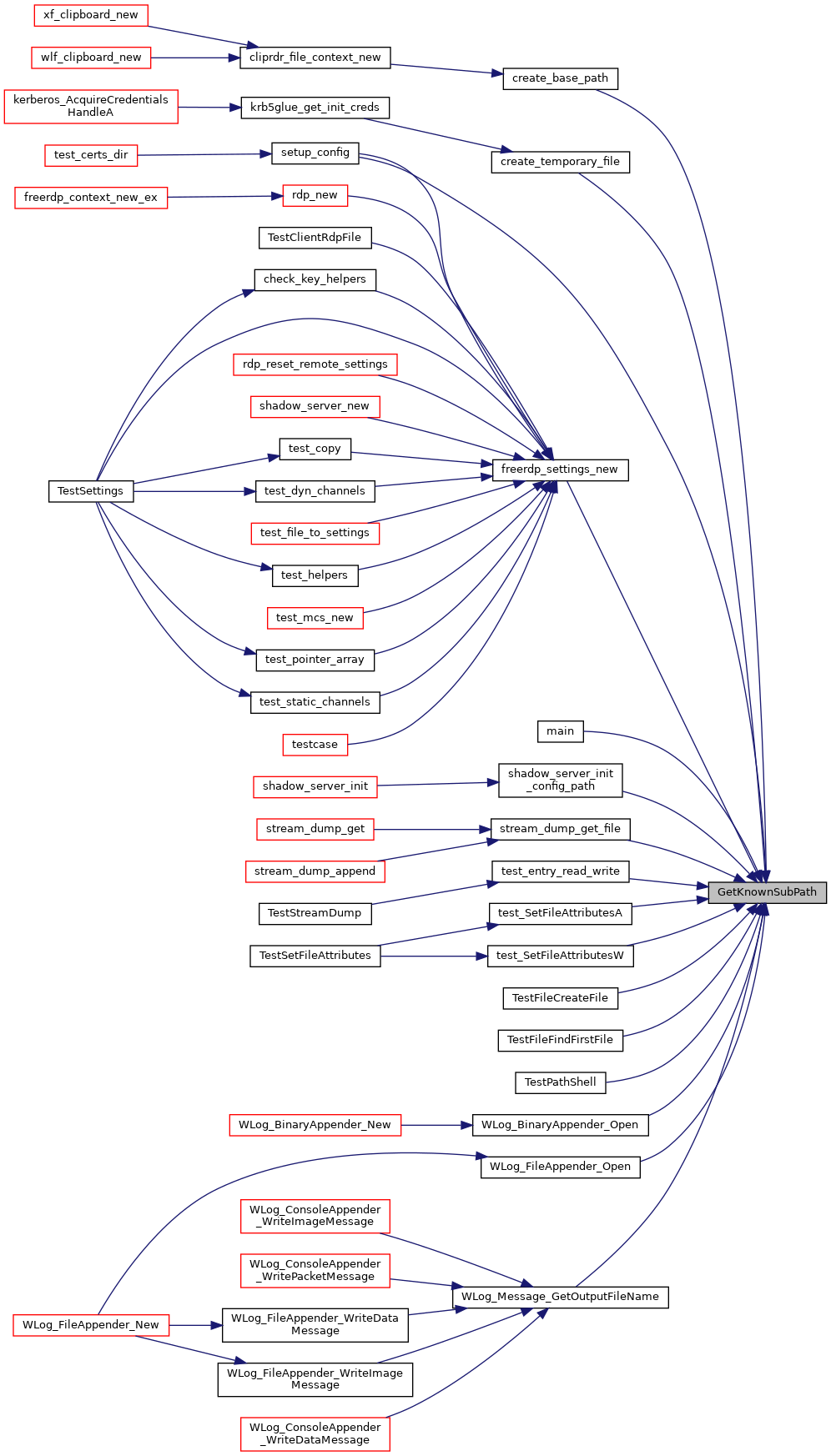
◆ GetPath_HOME()
|
static |

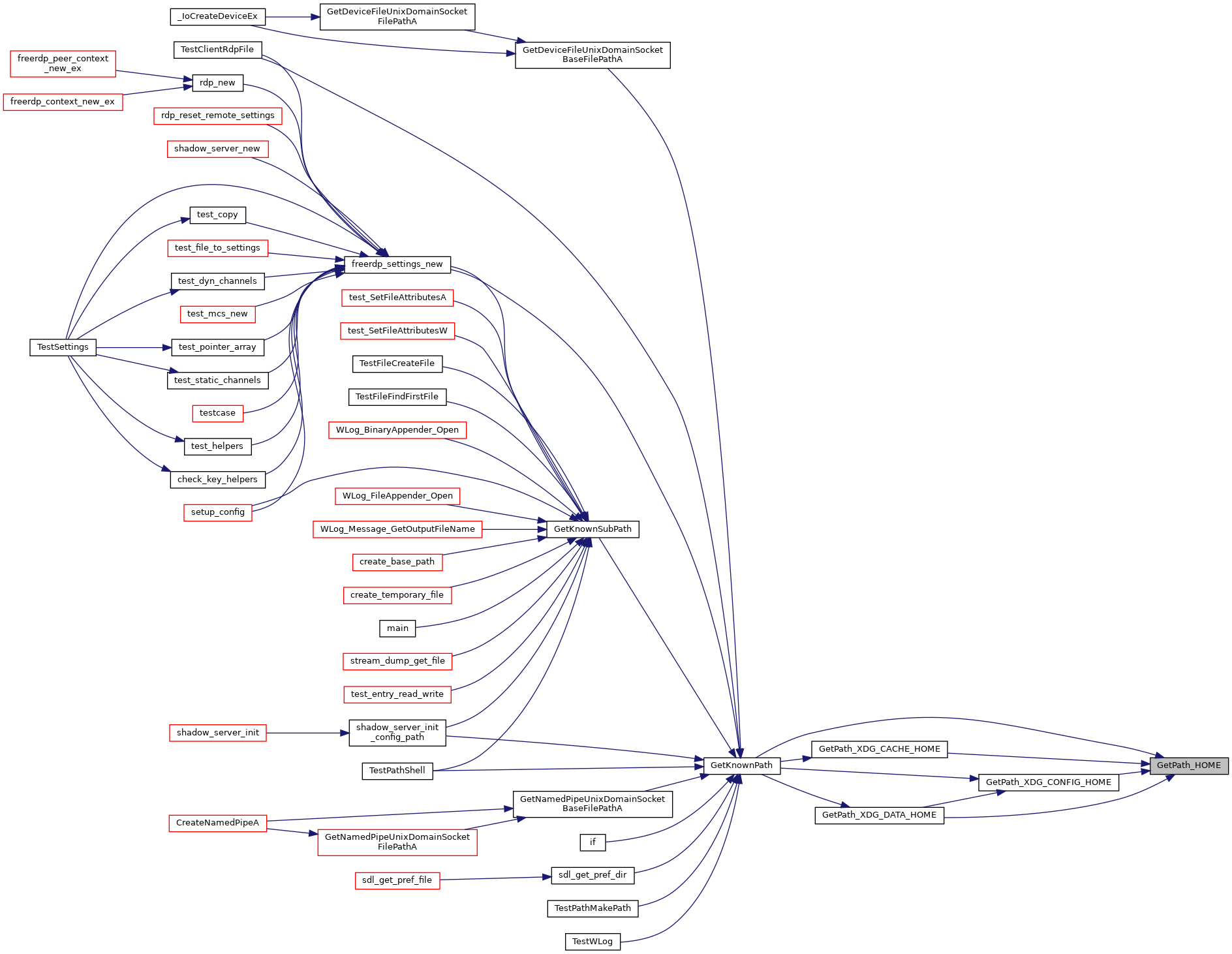
◆ GetPath_TEMP()
|
static |

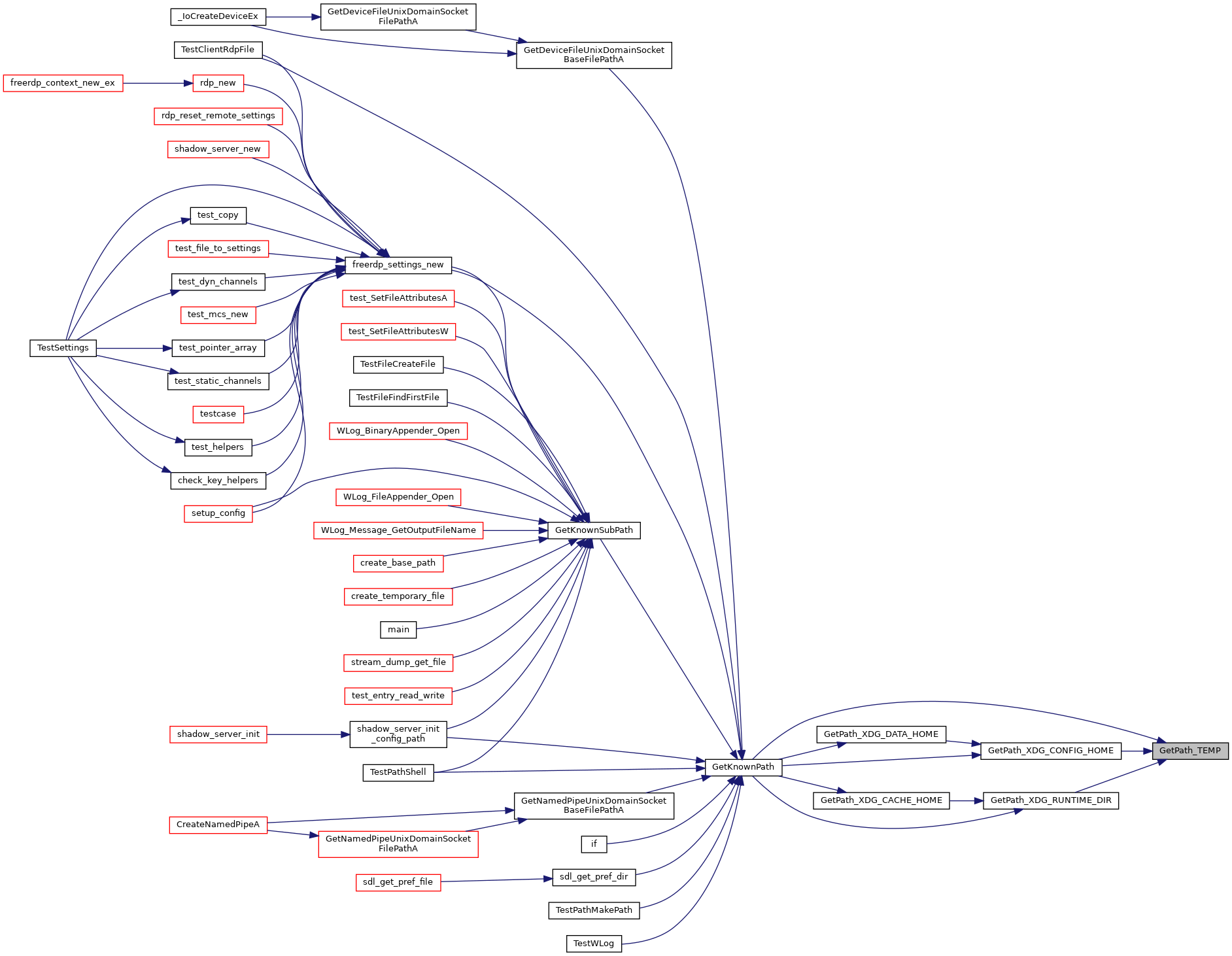
◆ GetPath_XDG_CACHE_HOME()
|
static |
There is a single base directory relative to which user-specific non-essential (cached) data should be written. This directory is defined by the environment variable $XDG_CACHE_HOME.
$XDG_CACHE_HOME defines the base directory relative to which user specific non-essential data files should be stored. If $XDG_CACHE_HOME is either not set or empty, a default equal to $HOME/.cache should be used.
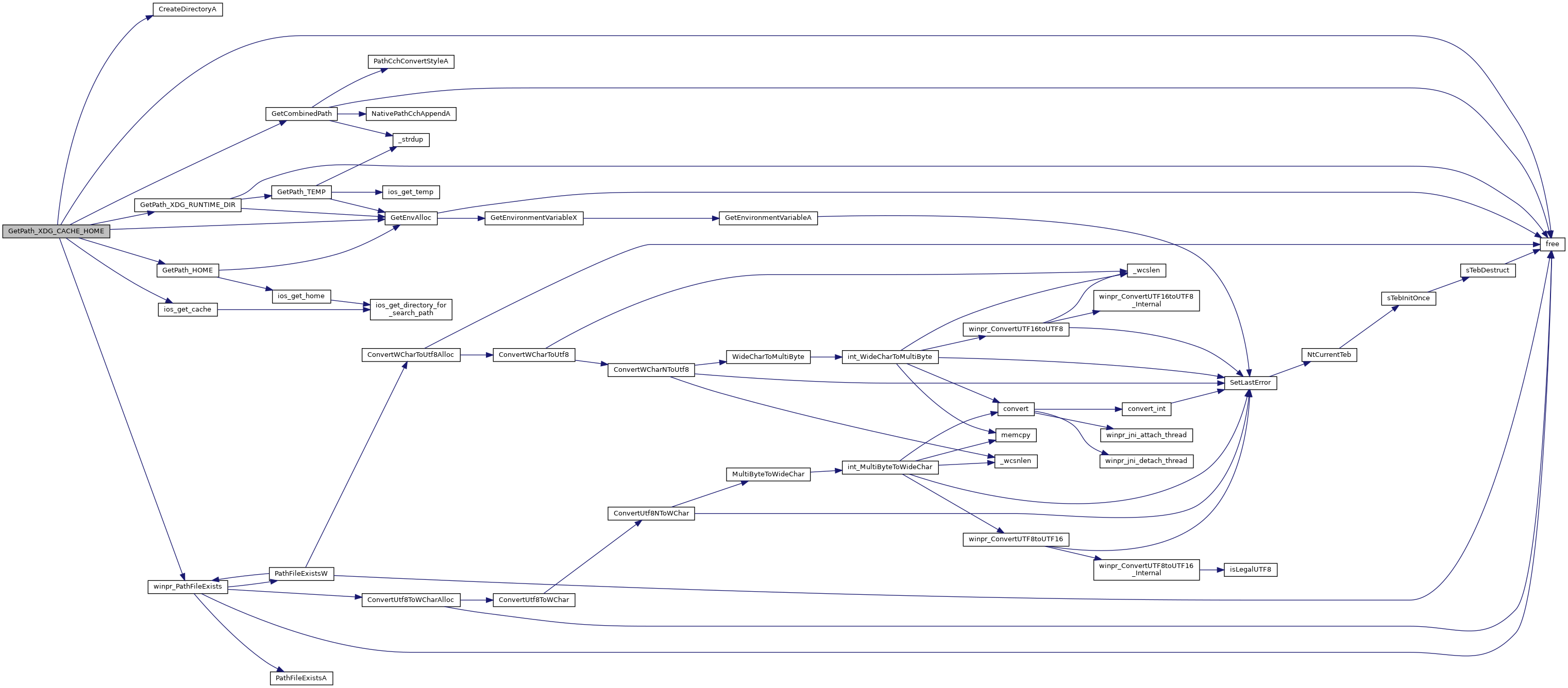
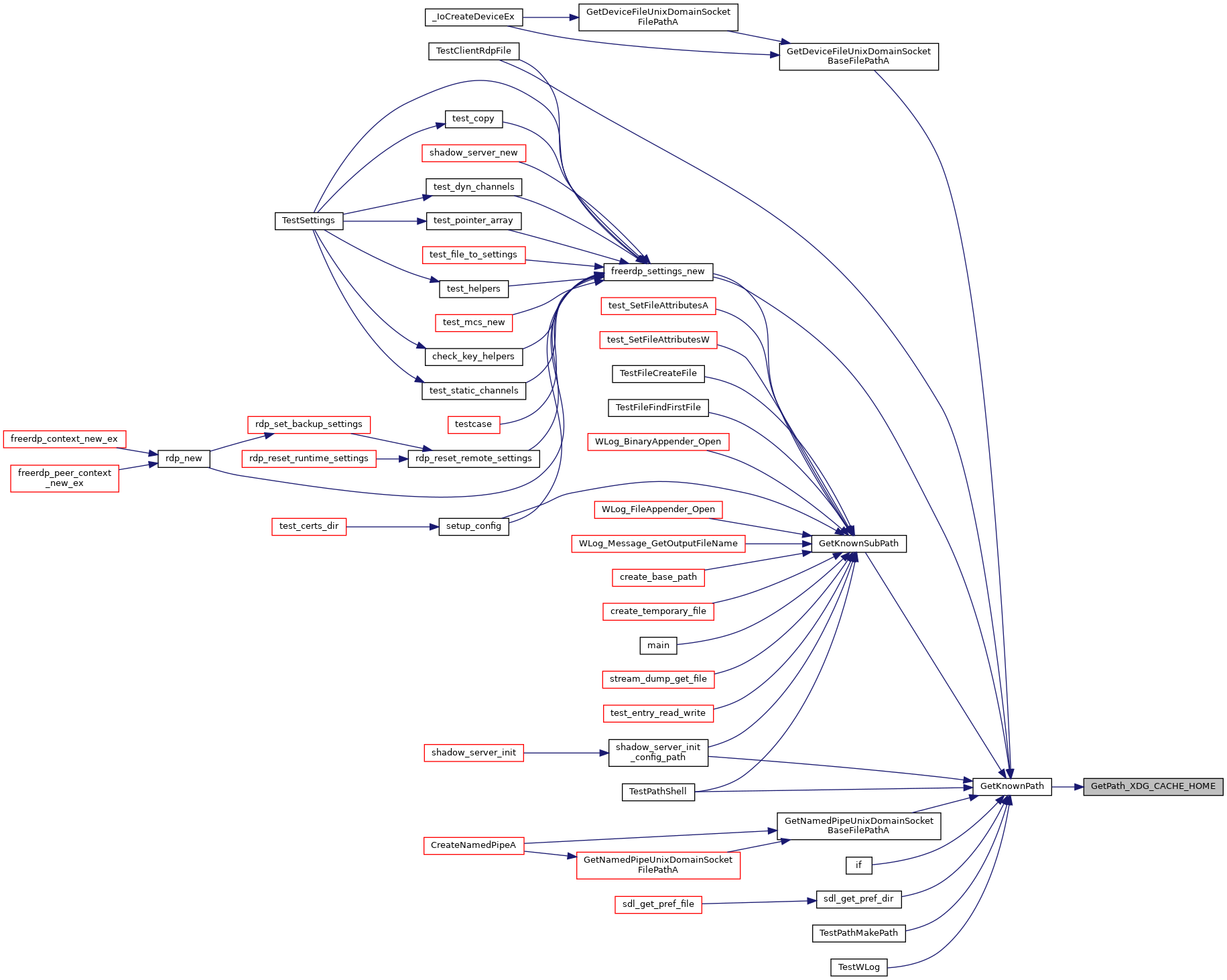
◆ GetPath_XDG_CONFIG_HOME()
|
static |
There is a single base directory relative to which user-specific configuration files should be written. This directory is defined by the environment variable $XDG_CONFIG_HOME.
$XDG_CONFIG_HOME defines the base directory relative to which user specific configuration files should be stored. If $XDG_CONFIG_HOME is either not set or empty, a default equal to $HOME/.config should be used.

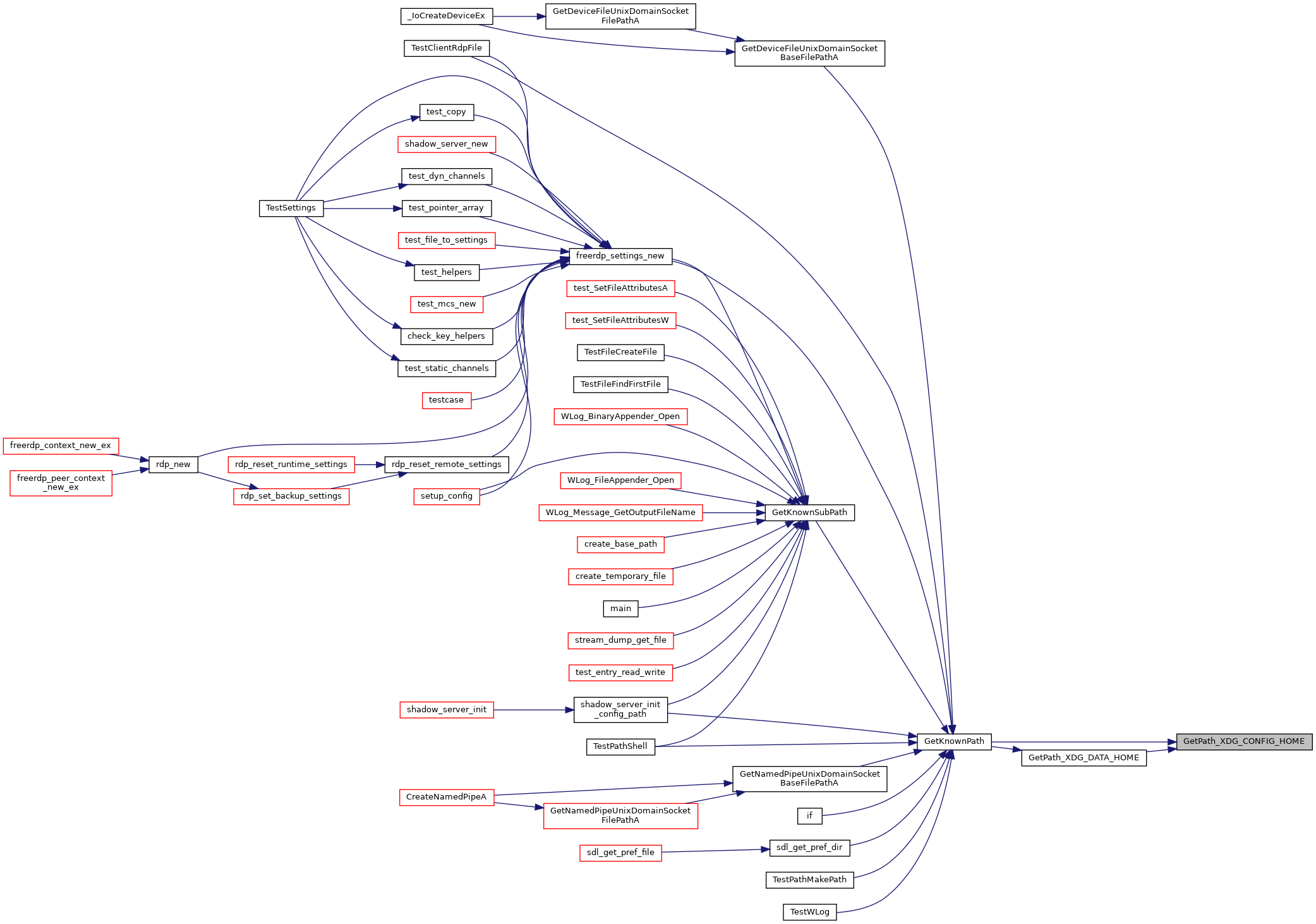
◆ GetPath_XDG_DATA_HOME()
|
static |
There is a single base directory relative to which user-specific data files should be written. This directory is defined by the environment variable $XDG_DATA_HOME.
$XDG_DATA_HOME defines the base directory relative to which user specific data files should be stored. If $XDG_DATA_HOME is either not set or empty, a default equal to $HOME/.local/share should be used.

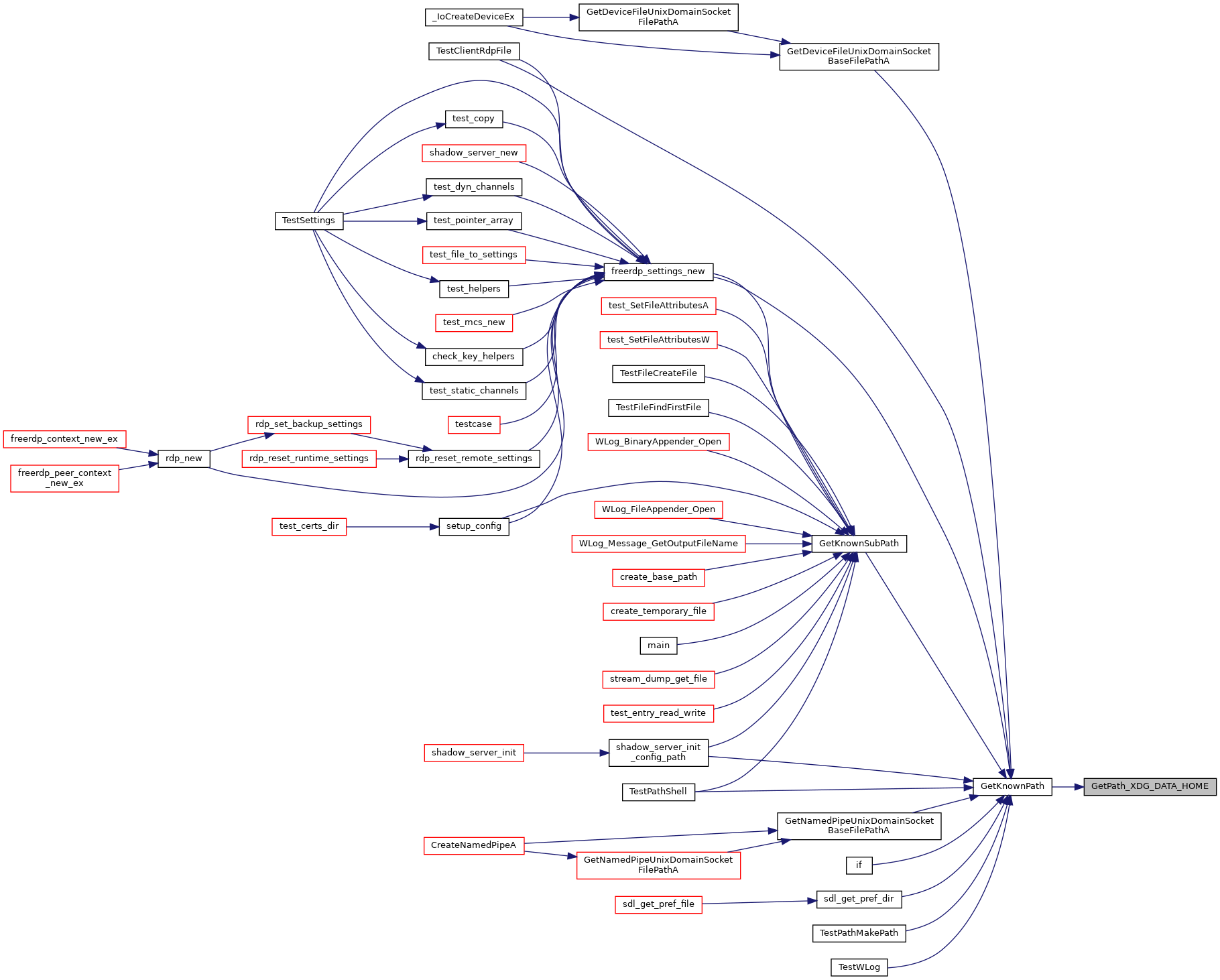
◆ GetPath_XDG_RUNTIME_DIR()
|
static |
There is a single base directory relative to which user-specific runtime files and other file objects should be placed. This directory is defined by the environment variable $XDG_RUNTIME_DIR.
$XDG_RUNTIME_DIR defines the base directory relative to which user-specific non-essential runtime files and other file objects (such as sockets, named pipes, ...) should be stored. The directory MUST be owned by the user, and he MUST be the only one having read and write access to it. Its Unix access mode MUST be 0700.
The lifetime of the directory MUST be bound to the user being logged in. It MUST be created when the user first logs in and if the user fully logs out the directory MUST be removed. If the user logs in more than once he should get pointed to the same directory, and it is mandatory that the directory continues to exist from his first login to his last logout on the system, and not removed in between. Files in the directory MUST not survive reboot or a full logout/login cycle.
The directory MUST be on a local file system and not shared with any other system. The directory MUST by fully-featured by the standards of the operating system. More specifically, on Unix-like operating systems AF_UNIX sockets, symbolic links, hard links, proper permissions, file locking, sparse files, memory mapping, file change notifications, a reliable hard link count must be supported, and no restrictions on the file name character set should be imposed. Files in this directory MAY be subjected to periodic clean-up. To ensure that your files are not removed, they should have their access time timestamp modified at least once every 6 hours of monotonic time or the 'sticky' bit should be set on the file.
If $XDG_RUNTIME_DIR is not set applications should fall back to a replacement directory with similar capabilities and print a warning message. Applications should use this directory for communication and synchronization purposes and should not place larger files in it, since it might reside in runtime memory and cannot necessarily be swapped out to disk.

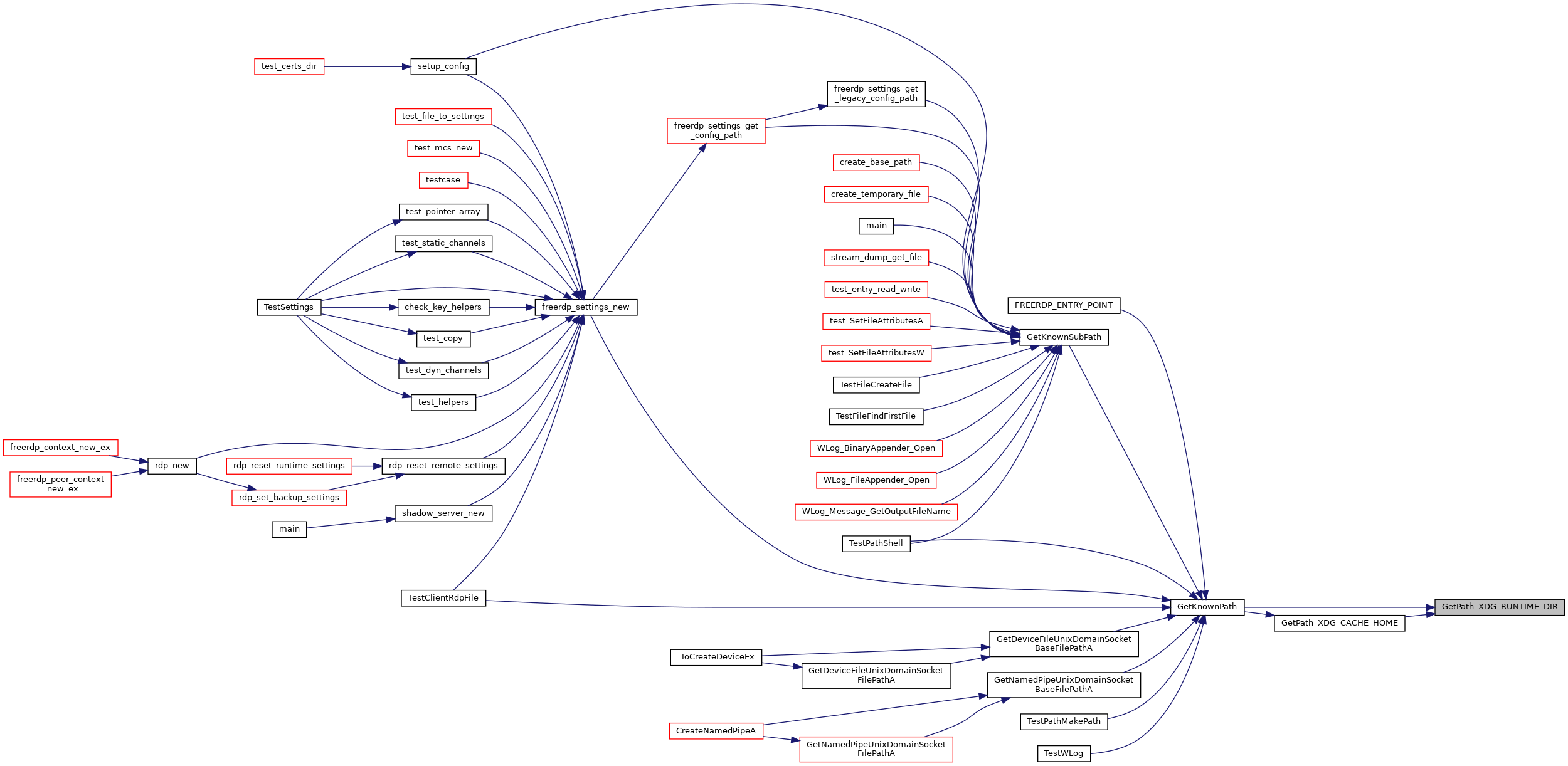
◆ PathFileExistsA()
| BOOL PathFileExistsA | ( | LPCSTR | pszPath | ) |
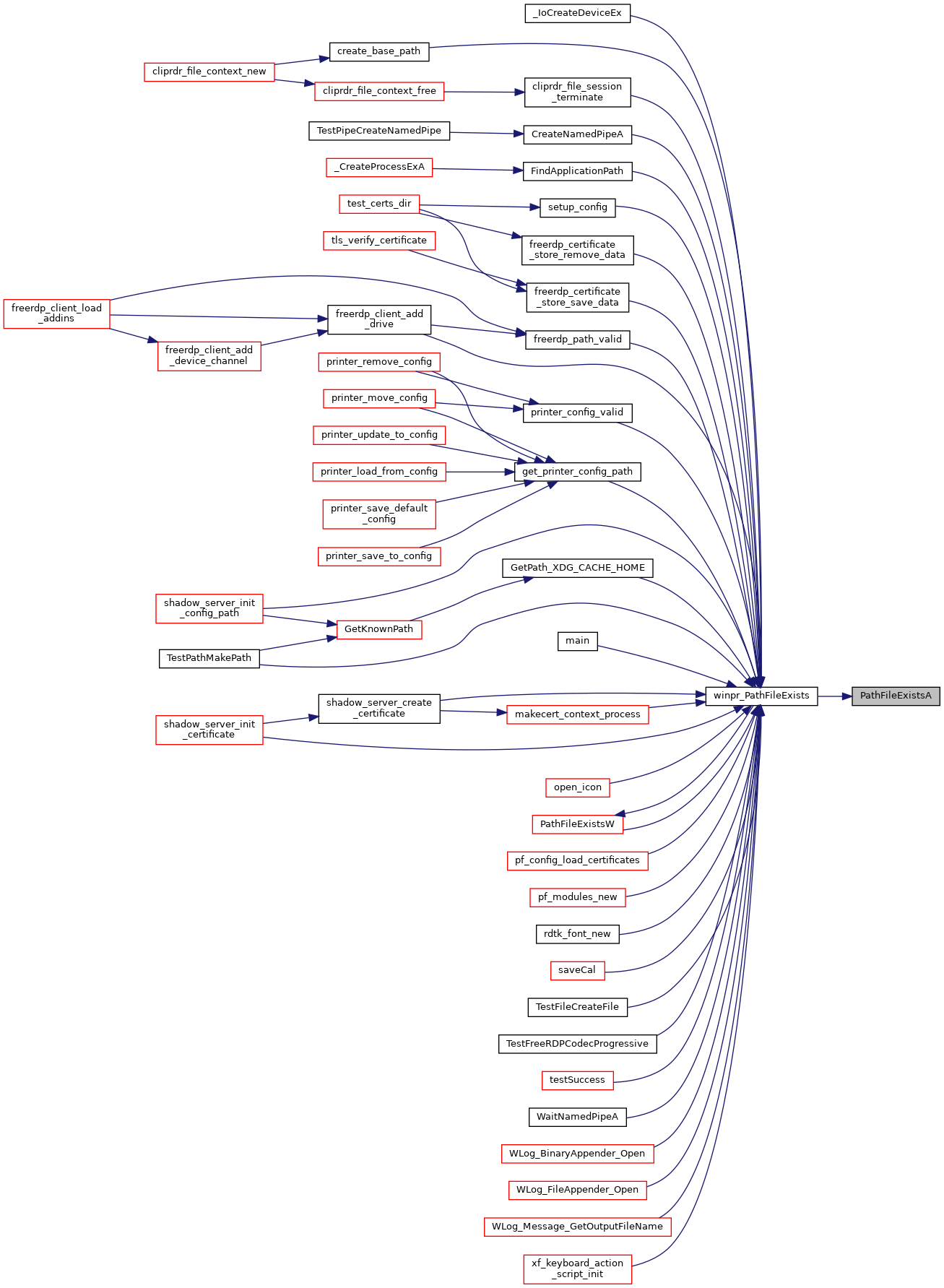
◆ PathFileExistsW()
| BOOL PathFileExistsW | ( | LPCWSTR | pszPath | ) |
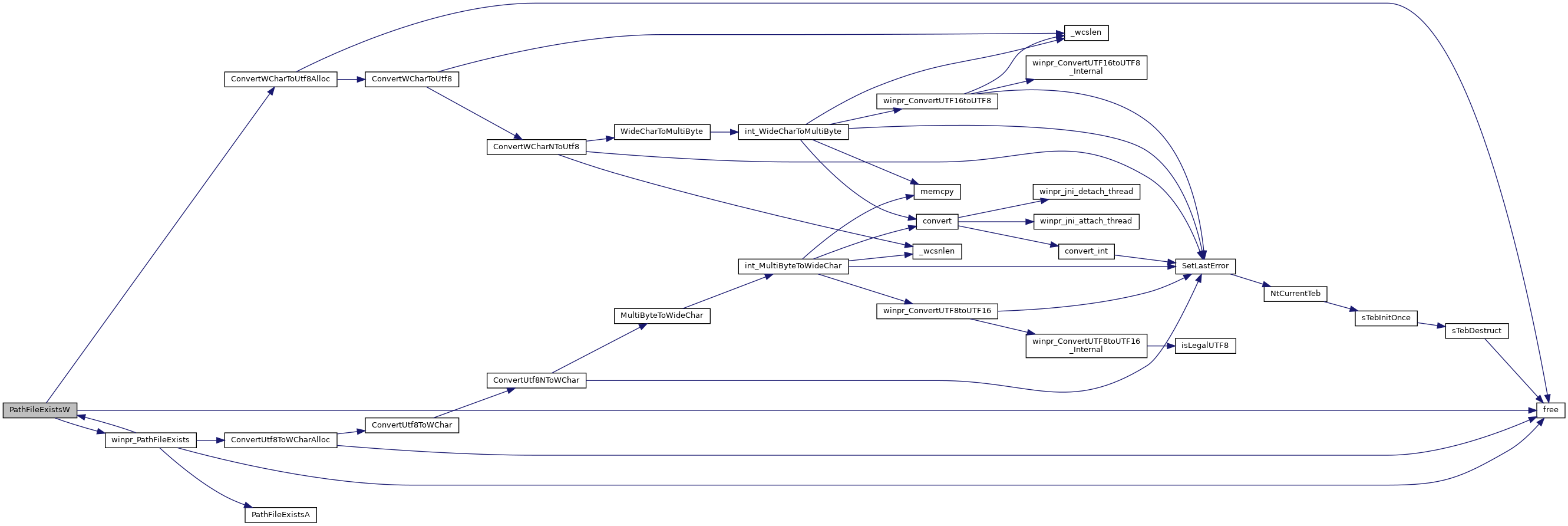
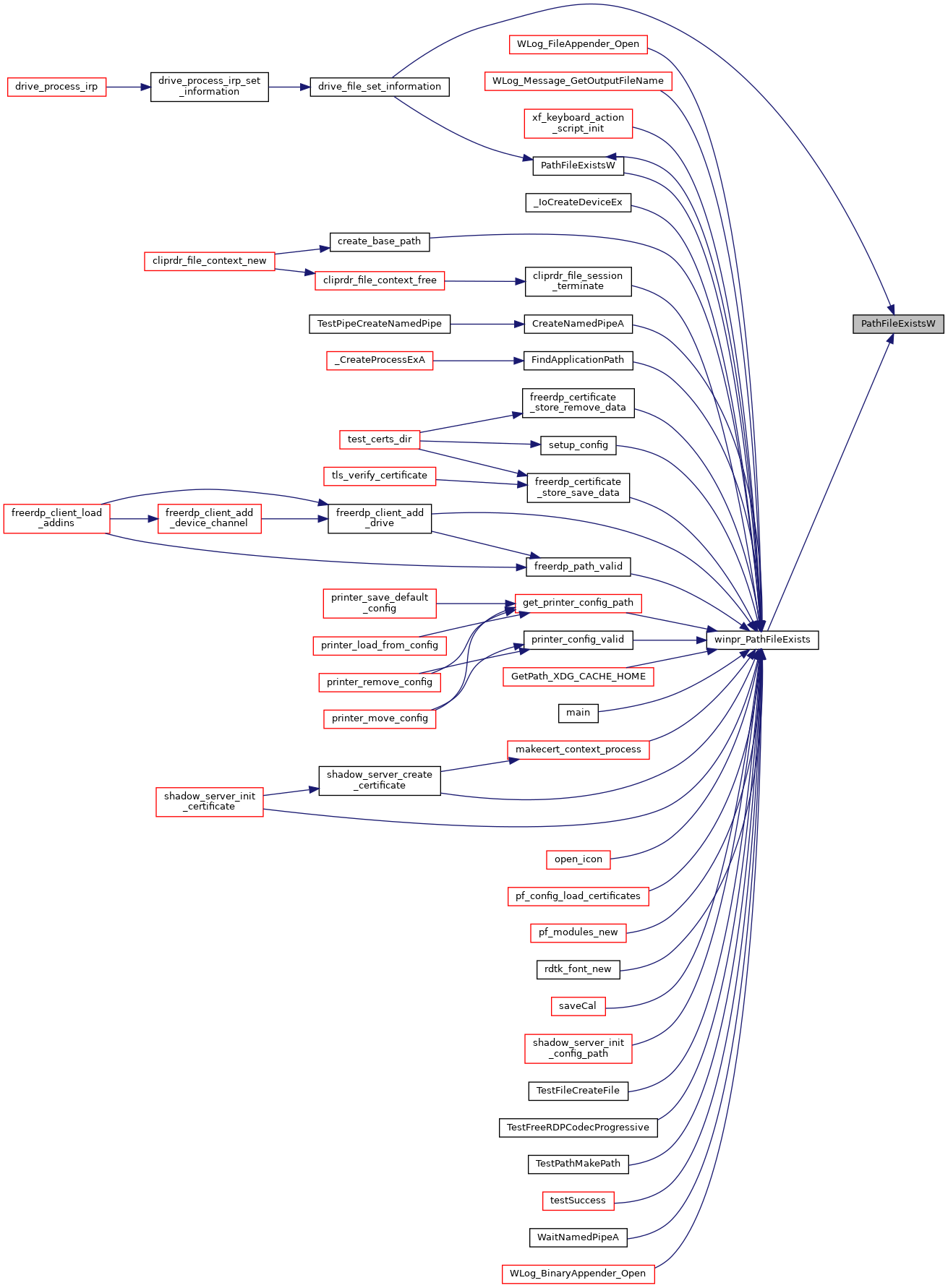
◆ PathIsDirectoryEmptyA()
| BOOL PathIsDirectoryEmptyA | ( | LPCSTR | pszPath | ) |

◆ PathIsDirectoryEmptyW()
| BOOL PathIsDirectoryEmptyW | ( | LPCWSTR | pszPath | ) |


◆ PathIsRelativeA()
| BOOL PathIsRelativeA | ( | LPCSTR | pszPath | ) |

◆ PathIsRelativeW()
| BOOL PathIsRelativeW | ( | LPCWSTR | pszPath | ) |

◆ PathMakePathA()
| BOOL PathMakePathA | ( | LPCSTR | path, |
| LPSECURITY_ATTRIBUTES | lpAttributes | ||
| ) |
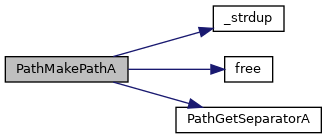
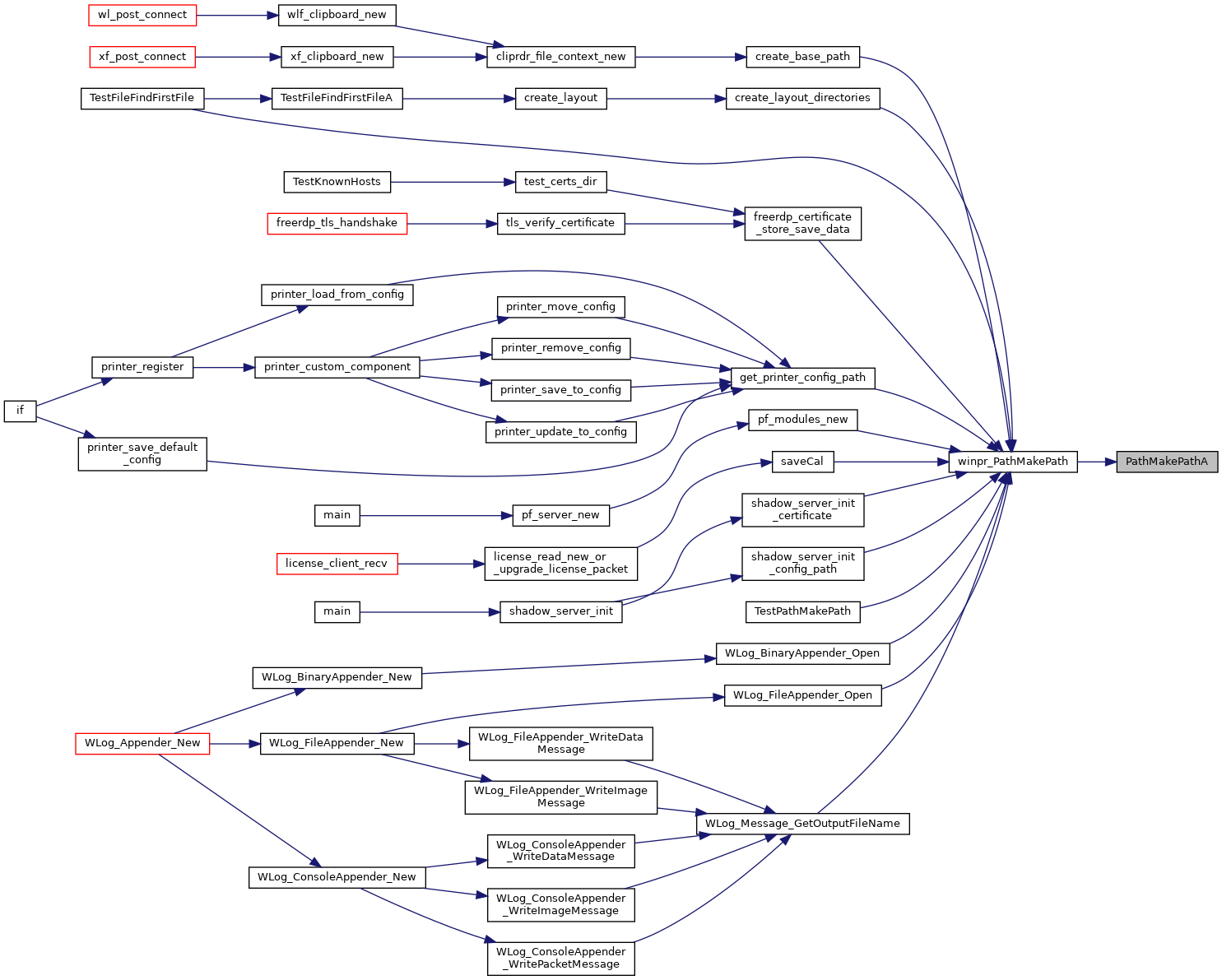
◆ PathMakePathW()
| BOOL PathMakePathW | ( | LPCWSTR | path, |
| LPSECURITY_ATTRIBUTES | lpAttributes | ||
| ) |

◆ winpr_DeleteFile()
| BOOL winpr_DeleteFile | ( | const char * | lpFileName | ) |


◆ winpr_MoveFile()
| BOOL winpr_MoveFile | ( | LPCSTR | lpExistingFileName, |
| LPCSTR | lpNewFileName | ||
| ) |
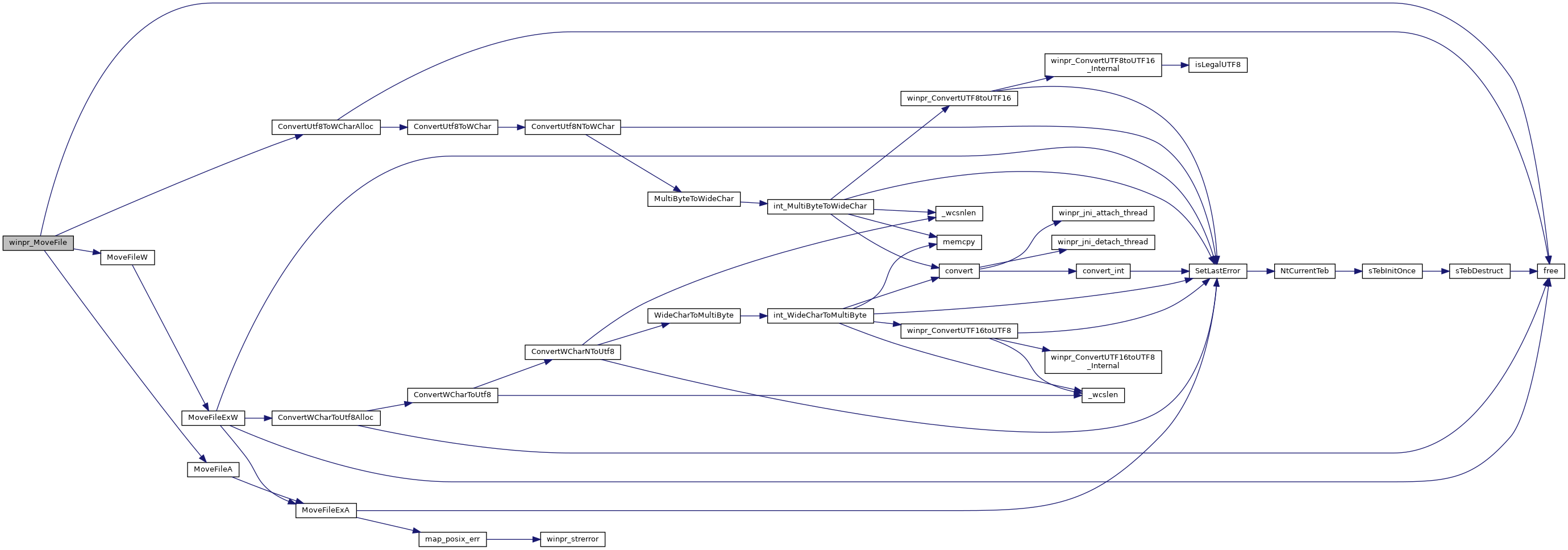

◆ winpr_MoveFileEx()
| BOOL winpr_MoveFileEx | ( | LPCSTR | lpExistingFileName, |
| LPCSTR | lpNewFileName, | ||
| DWORD | dwFlags | ||
| ) |
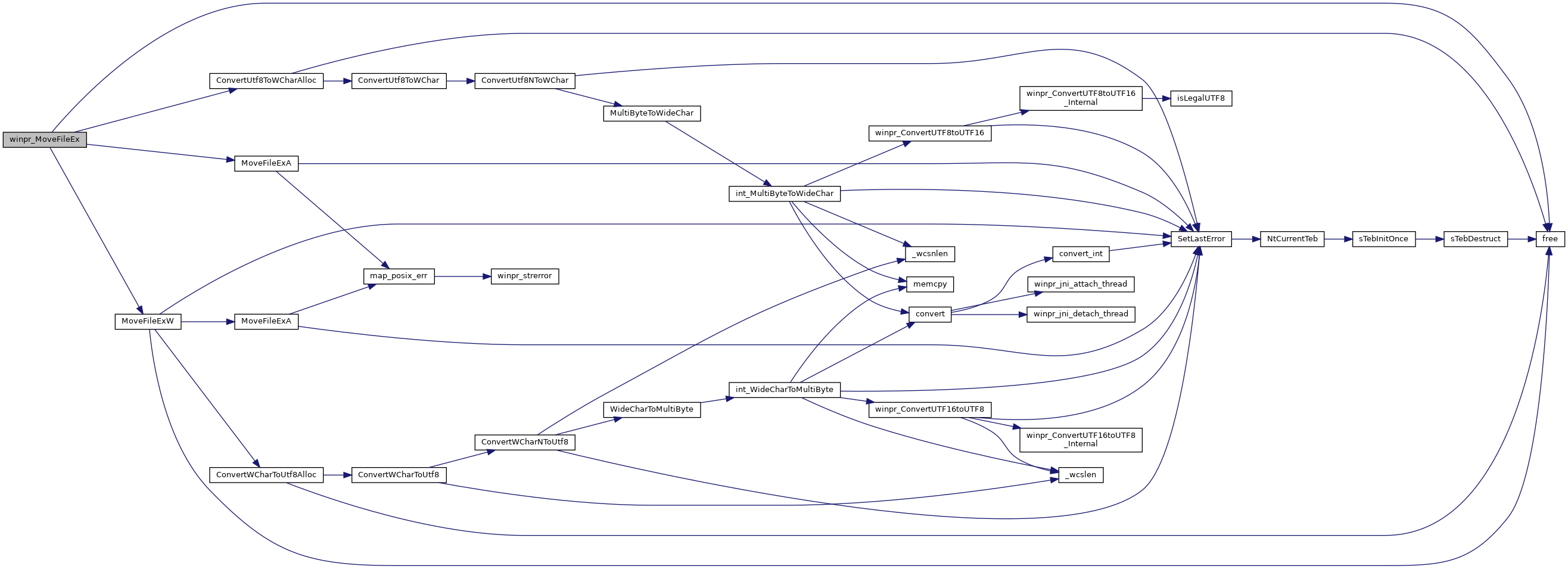

◆ winpr_PathFileExists()
| BOOL winpr_PathFileExists | ( | const char * | pszPath | ) |

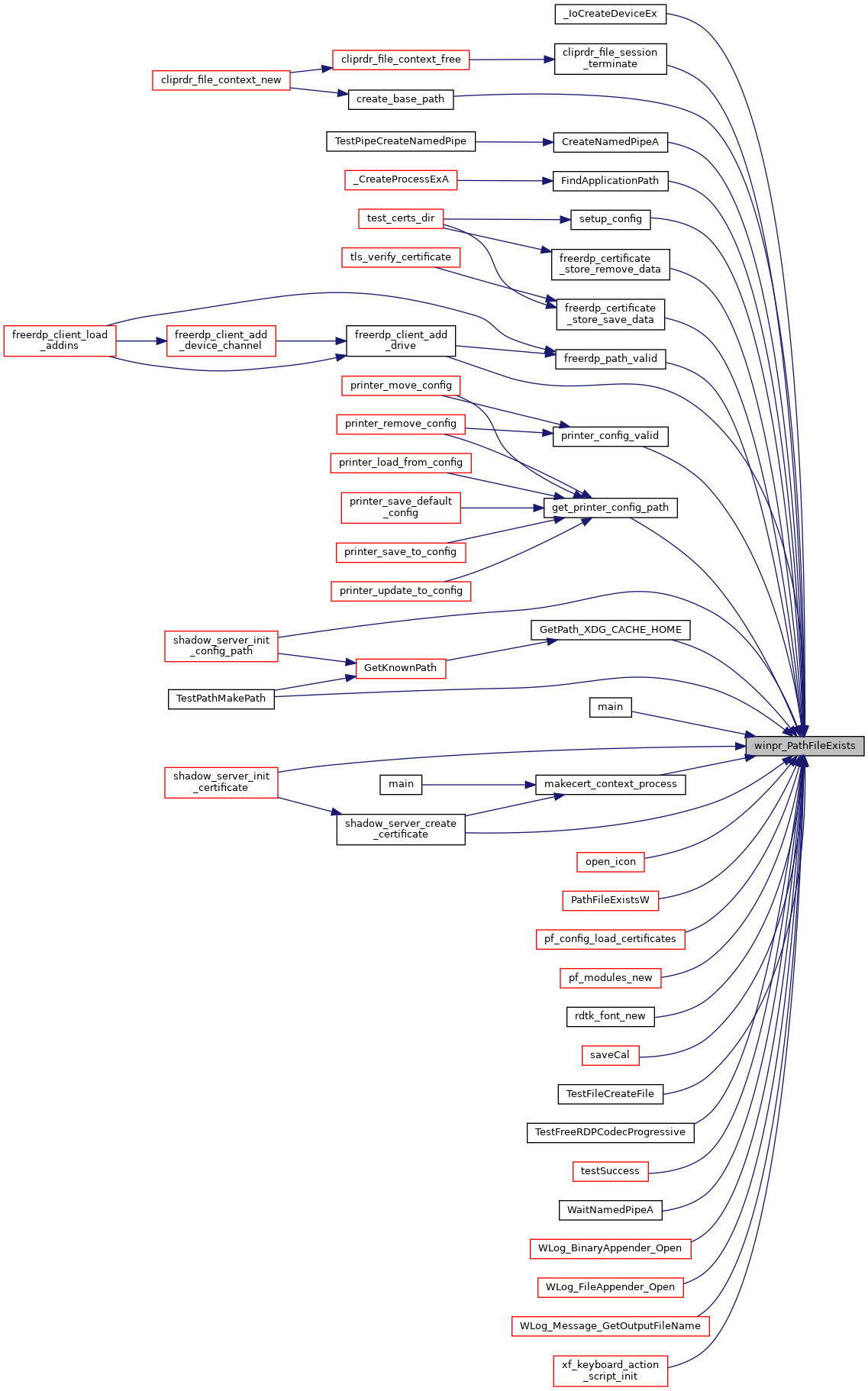
◆ winpr_PathMakePath()
| BOOL winpr_PathMakePath | ( | const char * | path, |
| LPSECURITY_ATTRIBUTES | lpAttributes | ||
| ) |

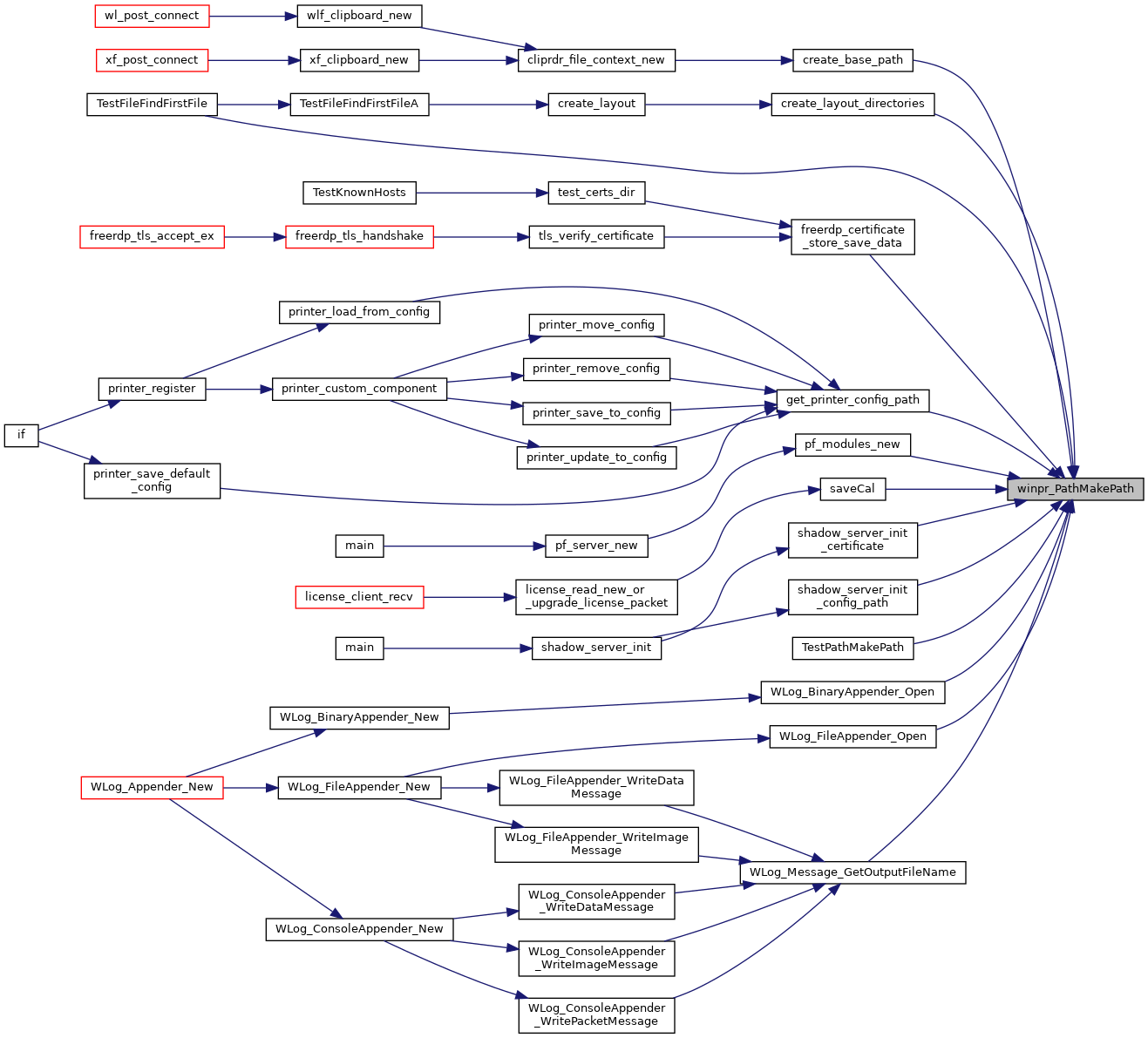
◆ winpr_RemoveDirectory()
| BOOL winpr_RemoveDirectory | ( | LPCSTR | lpPathName | ) |
